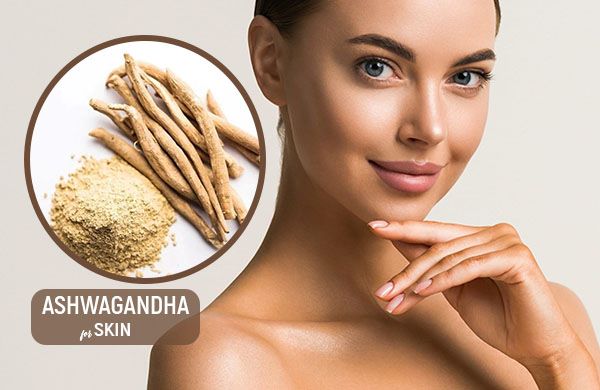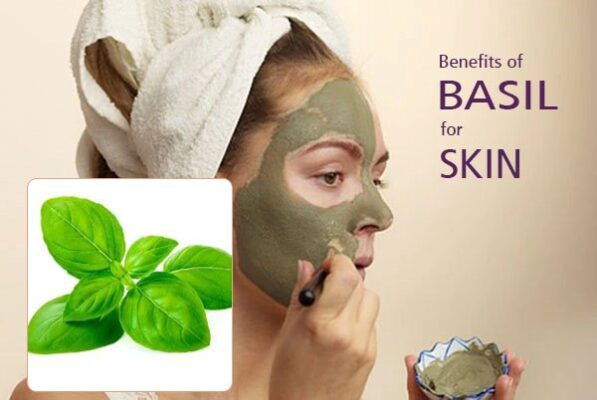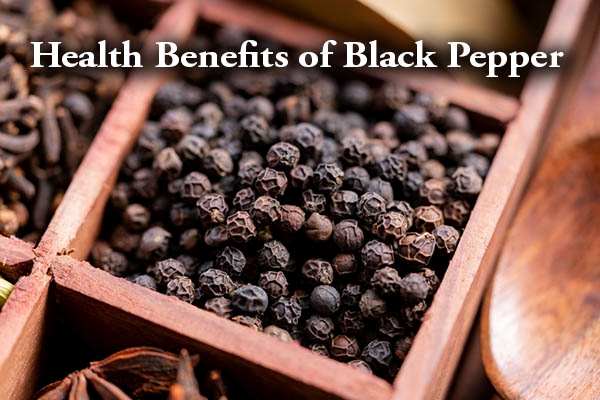Are you looking for a solution which improve your hair health? You may heard of collagen and biotin, both are beneficial for as hair health. But Which is Better for Hair Growth Collagen or Biotin? In this article, we’ll take you into the deep of the question whether collagen is better for hair than biotin. We examine the scientific evidence and provide best information to make an informed decision about which may be right for you. So, let’s dive in and find out which one reigns supreme in the world of hair health.
Table of Contents
What is Collagen and Biotin?
Collagen
Collagen is a protein that is naturally found in the body and is important for the structure and strength of hair, skin, and nails. It is a major component of the extracellular matrix that provides support to cells and tissues. Collagen supplements are often marketed as a way to improve skin and hair health, as well as joint health.
Benefits of Collagen
Collagen is a protein that is found throughout the body, including in the skin, bones, tendons, and cartilage. Here are some potential benefits of collagen based on the search results:
- Skin Health: Collagen is an important component of the skin, and it plays a role in maintaining skin elasticity and hydration. Some studies have suggested that collagen supplementation may improve skin elasticity, reduce wrinkles, and increase skin hydration[1].
- Joint Health: Collagen is a major component of cartilage, which is the connective tissue that cushions joints. Some studies have suggested that collagen supplementation may improve joint pain and stiffness in people with osteoarthritis.
- Tendon Health: Collagen is also an important component of tendons, which are the connective tissues that attach muscles to bones. Some studies have suggested that collagen supplementation may improve tendon health and reduce the risk of injury.
- Prognosis and Chemotherapy Benefits: A study found that a collagen deep learning (collagenDL) classifier could predict prognosis and adjuvant chemotherapy benefits in stage II-III colon cancer patients.
- Tendinopathy: A study found that local administration of insulin-like growth factor-1 (IGF-1) in combination with heavy slow resistance (HSR) training did not enhance tendon synthesis, tissue structure, and patient satisfaction versus saline injection combined with HSR training in patients with patellar tendinopathy.
Overall, collagen has shown potential benefits for skin, joint, and tendon health in different studies. It is important to note that individual results may vary, and the effectiveness of collagen supplements may depend on factors such as the underlying condition and individual response to the supplements.
Benefits of Collagen for hair
Some potential benefits of collagen for hair health include:
- Improved hair thickness and growth
- Increased hair tensile strength
- Reduced hair breakage and damage
Source of Collagen
Collagen can be obtained from dietary sources such as
- Dietary sources: bone broth, fish, and meat.
- Plant base sources: nuts, legumes, seeds and soy products
It is also available in supplement form, such as collagen peptides or hydrolyzed collagen. These supplements are typically derived from animal sources such as bovine or marine collagen.
Biotin
Biotin is a B-vitamin that is involved in the production of keratin, a protein that makes up hair, skin, and nails. Biotin supplementation has been found to improve hair quality and reduce hair loss in some studies. One study evaluated a nutraceutical product containing biotin and other ingredients and found that it increased anagen hair and hair density in subjects with telogen effluvium-like hair loss.
Benefits of Biotin
Biotin, also known as vitamin B7 or vitamin H, is a water-soluble vitamin that plays a crucial role in various bodily functions. Here are some potential benefits of biotin based on the search results:
- Hair Health: Biotin is often associated with promoting healthy hair growth. It is involved in the production of keratin, a protein that makes up the structure of hair, skin, and nails. Some studies have suggested that biotin supplementation may improve hair quality and reduce hair loss in some individuals.
- Nail Health: Biotin is also believed to support nail health. It may help strengthen brittle nails and improve their thickness and texture.
- Skin Health: Biotin is involved in maintaining healthy skin. It plays a role in the production of fatty acids, which are essential for maintaining skin moisture and overall skin health.
- Metabolic Function: Biotin is involved in several metabolic processes in the body, including the breakdown of carbohydrates, fats, and proteins. It acts as a coenzyme, helping enzymes carry out essential chemical reactions.
- Industrial Applications: Biotin is essential for the growth of many microorganisms and is often used as a supplement in microbial cultivation for research and industrial applications.
Overall, biotin has shown potential benefits for hair, nail, and skin health, as well as metabolic function. It is important to note that individual results may vary, and the effectiveness of biotin supplements may depend on factors such as the underlying condition and individual response to the supplements.
Benefits of Biotin for Hair
The benefits of biotin for hair, based on the search results, include:
- Improved Hair Growth: Biotin is believed to promote healthy hair growth. While research on biotin’s efficacy in healthy individuals is limited, studies have shown that biotin supplementation can lead to clinical improvement in hair growth in cases of underlying pathology or deficiencies.
- Hair Thickness and Strength: Biotin may help improve the thickness and strength of hair. Nutraceutical products containing biotin, along with other ingredients, have been found to increase anagen hair and hair density in individuals with hair loss conditions like telogen effluvium.
- Nail Health: Biotin is also known for its potential benefits on nail health. It may help strengthen brittle nails and improve their overall texture and appearance.
- Nutritional Support: Biotin is a vital nutrient that supports various metabolic processes in the body, including the breakdown of carbohydrates, fats, and proteins. Adequate biotin levels are essential for overall health and well-being.
Sources of Biotin
Biotin can be obtained from various food sources,
- Animal base source: eggs, fish (such as salmon), Chicken, meat (such as beef liver and pork chop), milk and bone broth
- Plant base sources: nuts, seeds, almonds, whole-wheat bread, apples, cheddar cheese, plain yogurt and certain vegetables like sweet potatoes and spinach.
While biotin is generally considered safe and beneficial for hair, nail, and skin health, it is important to note that individual results may vary.
See also: Essencial Nutrients for Hair Growth
Is Collagen Better Than Biotin For Hair Growth?
The debate between collagen and biotin often takes center stage. Both of these supplements have gained popularity for their potential benefits in enhancing hair health. However, there is some information related to the effects of collagen and biotin on hair growth. Here are the key points from the research results:
- Collagen: Collagen is a protein found throughout the body and has an important structural role in skin, hair, and nails. There is a patented process that enables the solubilization of collagen, making it bioactive and bio-available to the body. Some studies suggest that collagen supplementation can improve the strength and appearance of hair and reduce hair loss associated with washing.
- Biotin: Biotin is a water-soluble vitamin that is often associated with promoting hair growth. It is commonly found in hair growth supplements and is believed to support healthy hair growth. One study mentioned a nutraceutical product containing biotin that was developed to improve hair growth in subjects with hair thinning. The study reported an increase in anagen hair and hair density with biotin supplementation.
Based on the limited research information, it is difficult to determine Is Collagen Better Than Biotin For Hair Growth? It is important to note that hair growth is a complex process influenced by various factors, including genetics, overall health, and lifestyle. It may be beneficial to consult with a healthcare professional or a trichologist for personalized advice on hair growth and the use of supplements.
Collagen vs Biotin: What is the difference?
Collagen and biotin are two distinct substances with different roles in the body. Here, we’ll explore the primary differences between collagen and biotin:
1. Composition:
- Collagen: Collagen is a protein. It is the most abundant protein in the body and forms the structural framework for various tissues, including skin, hair, nails, bones, and tendons.
- Biotin: Biotin, also known as vitamin B7, is a water-soluble vitamin. It belongs to the B-complex vitamin group and is essential for various metabolic processes.
2. Role:
- Collagen: Collagen primarily provides structural support to tissues in the body. It helps maintain the strength, elasticity, and integrity of the skin, hair, nails, and connective tissues.
- Biotin: Biotin plays a vital role in various metabolic processes, including the conversion of food into energy. Specifically for hair, skin, and nails, biotin is involved in the production of keratin, a protein that makes up these tissues.
3. Sources:
- Collagen: Collagen is naturally present in foods such as bone broth, chicken skin, fish skin, and pork skin. It can also be obtained through collagen supplements.
- Biotin: Biotin is found in a variety of foods, including eggs, nuts, seeds, and certain vegetables. Additionally, it is available in supplement form.
4. Benefits:
- Collagen: Collagen supplements are often used to promote skin health, reduce signs of aging, strengthen hair and nails, and support joint health.
- Biotin: Biotin supplements are commonly taken to improve the strength and condition of hair, skin, and nails. It may also be recommended for individuals with biotin deficiency.
5. Use Cases:
- Collagen: Collagen is often used as a supplement to address issues related to skin aging, joint pain, and hair and nail health. It’s also used in cosmetic procedures like dermal fillers.
- Biotin: Biotin is primarily used for improving the condition of hair, skin, and nails, particularly in cases of brittleness or hair loss associated with biotin deficiency.
6. Side Effects:
- Collagen: Collagen supplements are generally considered safe with few side effects. Some individuals may experience digestive discomfort or mild allergic reactions.
- Biotin: Biotin is well-tolerated at recommended doses. However, extremely high doses of biotin can interfere with certain medical tests, so it’s important to follow dosage recommendations.
In summary, collagen and biotin are distinct substances with different roles in the body. Collagen provides structural support to tissues, while biotin is a vitamin essential for various metabolic processes, including the production of keratin. Both supplements have unique benefits and are commonly used to improve the health and appearance of hair, skin, and nails, but they serve different primary purposes in the body.
Can Collagen and Biotin be taken together for Hair Growth?
There is no specific evidence found on whether collagen and biotin can be taken together for hair growth. However, it is worth noting that both collagen and biotin are commonly found in hair growth supplements and are believed to have positive effects on hair health.
Collagen is a protein that plays a structural role in skin, hair, and nails. It has been shown to improve the strength and appearance of hair and reduce hair loss associated with washing. Biotin, on the other hand, is a water-soluble vitamin that is often associated with promoting hair growth. It is believed to support healthy hair growth and has been shown to increase anagen hair and hair density in a study.
While there is no direct evidence on the combination of collagen and biotin for hair growth, it is possible that taking them together may provide complementary benefits. Collagen can help improve the structural integrity of the hair, while biotin may support healthy hair growth. However, it is important to note that individual results may vary, and it is always recommended to consult with a healthcare professional before starting any new supplement regimen.
While there is no specific information on taking collagen and biotin together for hair growth, both supplements are commonly used for promoting hair health. Consulting with a healthcare professional can provide personalized advice on the use of these supplements for hair growth.
Risks and Side Effects
Collagen
Based on some research information on the risks and side effects of collagen, here are the key points:
- Collagen peptides: According to one study, supplementation with specific bioactive collagen peptides may help maintain mobility and improve overall quality of life, particularly in relation to joint and bone health. However, the study does not mention any specific risks or side effects associated with collagen supplementation.
- Converting enzyme inhibitors: There is a mention of collagen vascular disease, such as systemic lupus erythematosus or scleroderma, being a contraindication for long-term therapy with converting enzyme inhibitors due to the increased risk of neutropenia and life-threatening angioedema.
- D-penicillamine: D-penicillamine, a medication used for various conditions, inhibits collagen and elastin crosslinking, which can result in thin and vulnerable skin, among other side effects.
- Radiofrequency therapy: While not directly related to collagen supplementation, a study mentions the risks and side effects associated with radiofrequency therapy for skin rejuvenation. These risks include tissue damage and the importance of the physician’s experience in determining the outcome of the procedure.
It is important to note that the search results do not provide comprehensive information on the risks and side effects of collagen supplementation. It is always recommended to consult with a healthcare professional before starting any new supplement regimen to discuss potential risks, interactions with medications, and individual health considerations.
Biotin
Biotin is generally considered safe when taken in recommended doses. However, there are some risks and side effects associated with biotin supplementation. Here are the key points from the search results:
- Allergic reactions: In rare cases, biotin supplements can cause allergic reactions, such as hives, difficulty breathing, and swelling of the face, lips, tongue, or throat.
- Interference with lab tests: High doses of biotin can interfere with certain lab tests, such as thyroid function tests and troponin tests, leading to false results.
- Skin rash: In a study, biotin was administered to patients with skin rash caused by epidermal growth factor receptor (EGFR) tyrosine kinase inhibitors (TKIs), and it reduced the skin rash in all patients.
- Other side effects: There is limited information on other side effects of biotin supplementation. However, one study mentioned that a nutraceutical product containing biotin was associated with an increase in anagen hair and hair density in subjects with hair thinning.
It is important to note that biotin supplements may interact with certain medications, such as anticonvulsants and antibiotics, and may not be safe for people with certain medical conditions, such as kidney disease. It is always recommended to consult with a healthcare professional before starting any new supplement regimen.
Conclusion
Both collagen and biotin have their merits when it comes to promoting hair growth. Collagen contributes to hair strength and scalp health, while biotin is essential for keratin production and reducing hair loss. Ultimately, the best choice for you depends on your individual needs and goals for healthier, more vibrant hair.
FAQs
Q: Does Biotin and Collagen Make Hair Grow Faster?
A: Biotin and collagen can contribute to healthier hair, but they don’t necessarily make hair grow faster on their own. They support hair growth by improving the overall health of your hair and can potentially reduce hair loss. Biotin is essential for the production of keratin, a key structural component of hair, while collagen provides the necessary structural support for hair.
Q: Will Collagen Make My Hair Grow Faster?
A: Collagen can improve the health of your hair by strengthening hair strands and promoting a healthy scalp. This can indirectly support the natural growth cycle of your hair. However, it’s important to note that individual hair growth rates can vary, and collagen alone won’t dramatically increase the speed at which your hair grows.
Q: Is Biotin and Collagen Good for Thin Hair?
A: Both biotin and collagen can be beneficial for thin hair. Biotin helps strengthen hair strands, reducing brittleness and breakage, which can be particularly helpful for thin or fragile hair. Collagen also contributes to hair strength and overall hair health, making it a valuable addition for those with thin hair. Combining these supplements, along with a balanced diet and proper hair care, may provide the best results for thinning hair.
Q: Vitamin or Collagen: Which Is Best for Hair Growth?
A: The choice between vitamins and collagen for hair growth depends on your specific needs. Biotin, a vitamin (B7), is essential for hair health as it supports the production of keratin. If you have a biotin deficiency, it’s essential to address it with biotin supplementation or dietary changes.
Collagen, on the other hand, is a structural protein that supports the overall health of hair and can strengthen hair strands. If your hair issues are related to structural weakness or damage, collagen supplements may be beneficial.





2 thoughts on “Is Collagen Better Than Biotin For Hair Growth?”